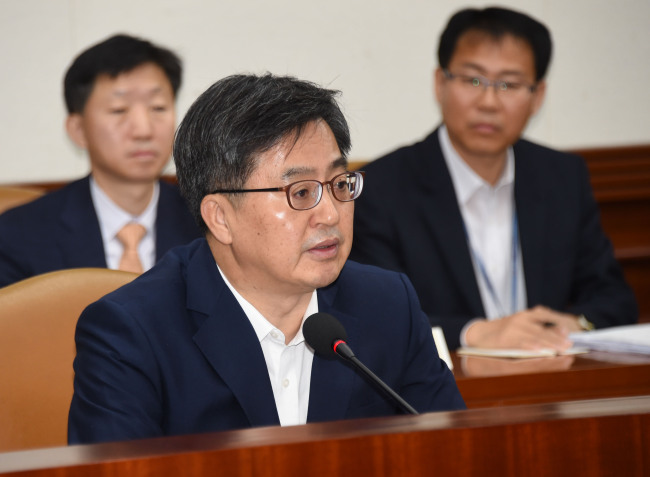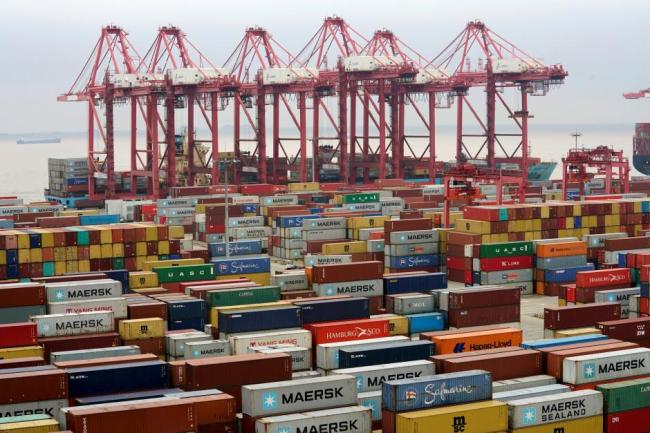S. Korea to diversify trade amid US-China tension: finance minister
By Bae HyunjungPublished : Oct. 23, 2018 - 16:58
Responding to protracted trade tension between the United States and China, South Korea should further diversify its trade channels and seek multilateral ties, the country’s top economic policymaker said Tuesday.
“Seeking to actively respond to trade protectionism, (Korea) will take pre-emptive actions to diversify its investment and human interchanges,” said Deputy Prime Minister and Finance Minister Kim Dong-yeon in a meeting of economy-related ministers.
He then called for Seoul’s active participation in multilateral trade platforms such as the Comprehensive and Progressive Agreement for Trans-Pacific Partnership, as well as the Group of 20 and Pacific Alliance.
“Seeking to actively respond to trade protectionism, (Korea) will take pre-emptive actions to diversify its investment and human interchanges,” said Deputy Prime Minister and Finance Minister Kim Dong-yeon in a meeting of economy-related ministers.
He then called for Seoul’s active participation in multilateral trade platforms such as the Comprehensive and Progressive Agreement for Trans-Pacific Partnership, as well as the Group of 20 and Pacific Alliance.

The TPCPP, the modified version of the formerly US-led Trans-Pacific Partnership, represents $10 trillion in gross domestic product or 13.5 percent of the world total. Seoul is seeking to join the economic bloc, which currently consists of Australia, Brunei, Canada, Chile, Japan, Malaysia, Mexico, New Zealand, and Peru.
Asia’s fourth-largest economy has also been gesturing lately at gaining associate membership in the PA, where Mexico, Peru, Colombia and Chile are members.
“The latest G-20 financial ministers’ summit agreed that trade tensions are key risk factors in the global economy these days,” Kim said, adding that the ongoing US-China conflict is likely to last for some time.
The fiscal chief also issued warnings on the possibility that Washington may designate Beijing a currency manipulator in the near future, should ongoing tension continue. The US Department of the Treasury last week classified China and South Korea, along with four other countries, on the monitoring list up until its next foreign exchange policy report release in April next year.
US Treasury Secretary Steven Mnuchin especially pointed out to China’s lack of currency transparency and the recent weakness of its currency.

“Such conflict, when affiliated with the volatility in emerging economies and the US interest rate hike plan, is likely to deliver a shock to the market,” Kim said.
“We need to make the best use of these changes in external conditions so that they may serve as new opportunities, instead of just crisis factors,” Kim said.
By Bae Hyun-jung (tellme@heraldcorp.com)



![[Herald Interview] 'Amid aging population, Korea to invite more young professionals from overseas'](http://res.heraldm.com/phpwas/restmb_idxmake.php?idx=644&simg=/content/image/2024/04/24/20240424050844_0.jpg&u=20240424200058)












![[KH Explains] Korean shipbuilding stocks rally: Real growth or bubble?](http://res.heraldm.com/phpwas/restmb_idxmake.php?idx=652&simg=/content/image/2024/04/25/20240425050656_0.jpg&u=)

